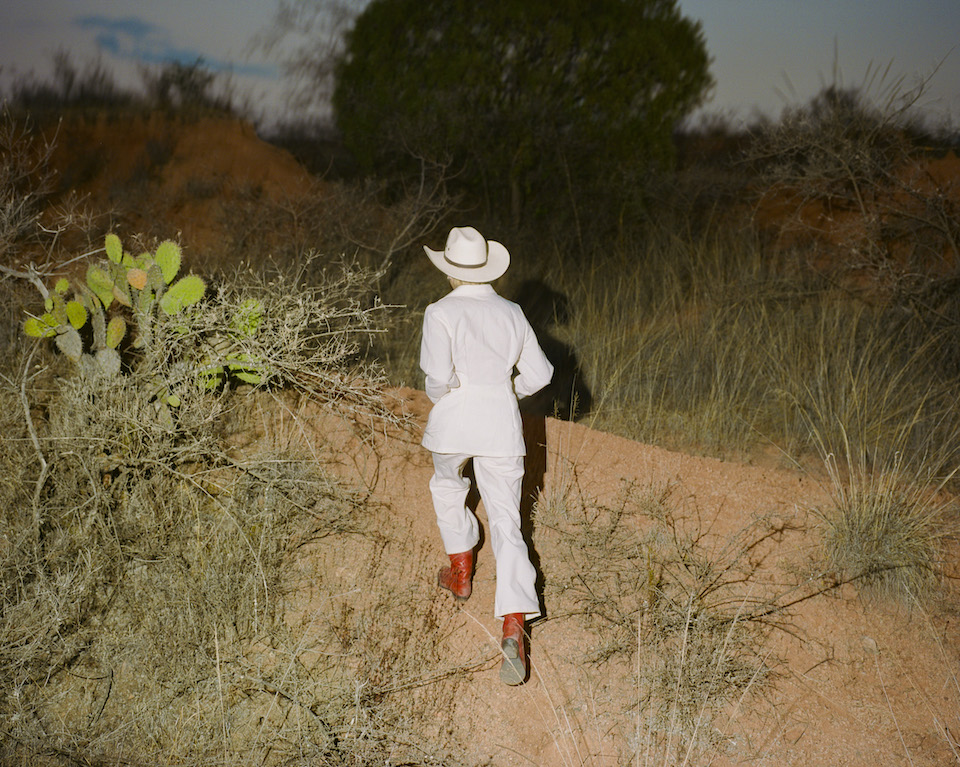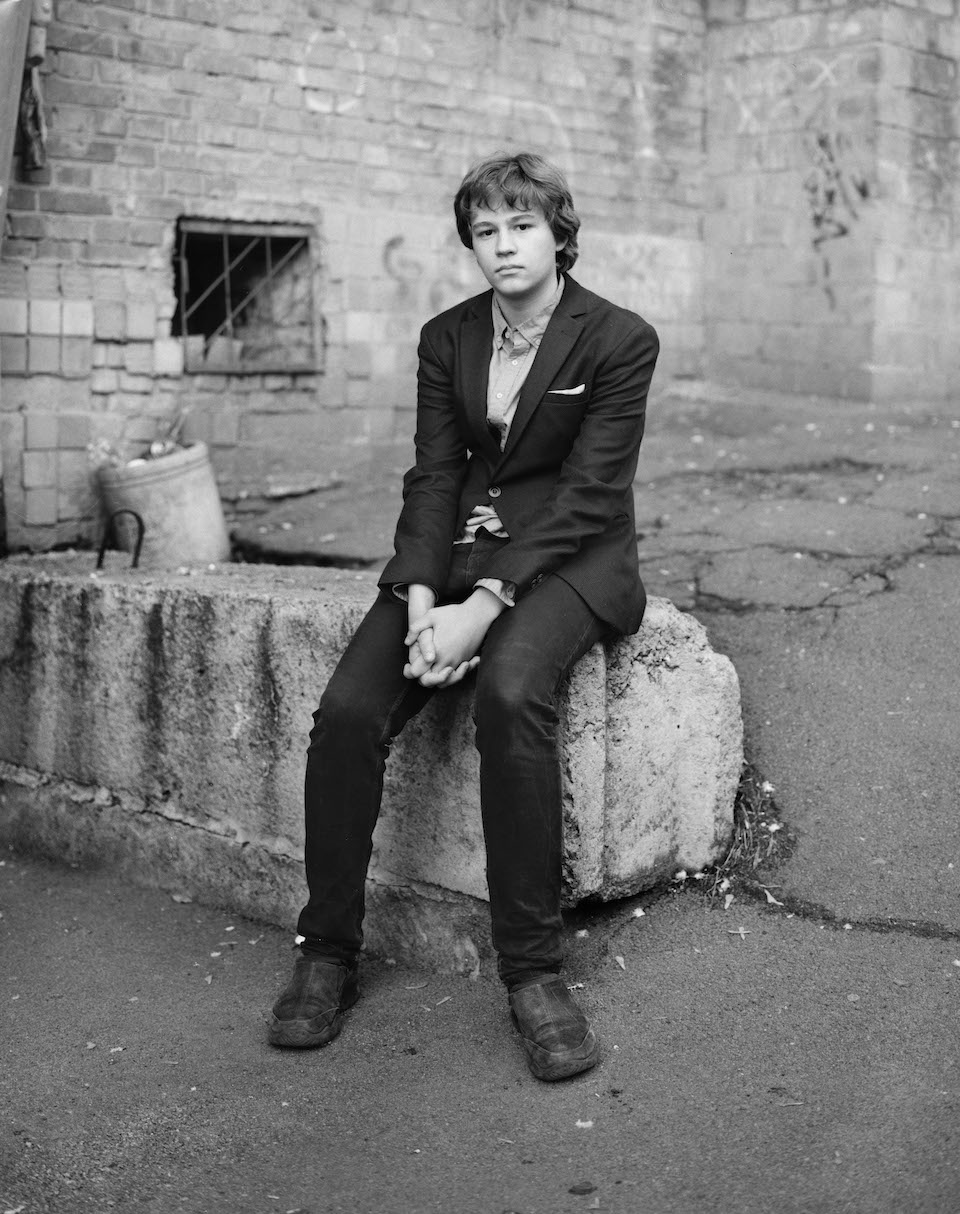Image © Aria Shahrokhshahi, OpenWalls Arles 2021 Single Image Winner.
“It’s a way for me and my mum to heal our relationship, for us to get closer and for me to get to know her in a different way,” says Aria Shahrokhshahi, of his OpenWalls Arles winning portrait: Mum went and Fell
“She was sat in the kitchen and I just fucking grabbed the kitchen table, moved it out of the way, set up the 4×5, and took the photo,” says Iranian-British photographer Aria Shahrokhshahi. He is speaking about his winning image for BJP’s OpenWalls Arles award, Mum went and Fell, which was shown as part of the award exhibition at Galerie Huit Arles in 2021. “You can really see her through and through,” he says. Razor-sharp in its focus on pain and healing – emotions inherent to the human condition – it is a portrait that reveals as much about Shahrokhshahi’s mother as it does about us.
Tender yet stark, the image is an unforgiving insight into the fragility of his parent’s life. It depicts Shahrokhshahi’s mother sitting in her dressing gown, lips tightly pursed, a crop of fiery red hair framing her face. “She kind of looks infantile, like a child because she’s got no guard up, no mask,” he says. A lightning bolt stitch courses across her forehead; a deflated look is set deep into her face. Shahrokhshahi’s photograph leans into pain, capturing a trusting exchange between mother and son. It forms part of an ongoing series that Shahrokhshahi says will continue until her dying days.
Shahrokhshahi speaks over the phone from South Korea after a full day of shooting a commercial project. He sees his OpenWalls winning portrait much like he does all of his work: an investigation into the relationship he has with his subject. “The picture is from a series of images about my very complex relationship with my mom,” he explains. Photographing his mother, and indeed exhibiting the photo, has been a form of catharsis. “It’s a way for me and my mum to develop our relationship and to heal our relationship, for us to get closer and for me to get to know her in a different way.”
For the 26-year-old photographer, seeing the image of his mother framed and hung at Galerie Huit Arles was a moment of great magnitude. “Seeing her in a proper gallery is a strange feeling,” he recalls. “There’s something so special about seeing your picture on the wall in real life.” Although his mother couldn’t see the exhibition in person, Shahrokhshahi sent her pictures of the image on display, which he said drove home heightened feelings of gratitude and accomplishment. “She found the whole thing wicked,” he chuckles. “And I felt really proud of her and in a way, I felt proud of myself.”
Exhibiting not only affected Shahrokhshahi’s personal outlook but also impacted him professionally. According to the Nottingham-born photographer, exhibiting his work inside the 17th-century mansion Galerie Huit Arles alongside the world’s greatest gathering for photographers, Les Rencontres d’Arles, was a huge achievement. “Having your work being shown in a place that I’ve admired for so long is kind of a dream,” he says. “Having your work show in Arles is a real milestone as a photographer.”
When asked what makes his relationship with his mother complex, Shahrokhshahi is reserved, hyper-aware of the pitfalls of speaking on behalf of another. “I’m still defining what it is to me and my mum because it’s not only up to me, but my mum as well,” he explains. He makes reference to a difficult childhood spent caring for her but has chosen to keep this chapter of his life resolutely private, instead choosing to let the image tell its story.
This sensitivity is a mark of Shahrokhshahi’s respect and is deeply rooted in his approach to photographing vulnerable people without moral judgement. His portfolio, which centres on social issues, includes a series on a friend with an eye condition in The Gambia, migrant communities in Calais, and children living in the suburbs of São Paulo. The connections Shahrokhshahi forms through his work can be lifelong, as it’s common for him to live among the people he photographs.
Since being recognised as an OpenWalls winner, the documentary photographer has continued chronicling social issues with his camera. He has spent time in Ukraine capturing the lives of those on the border, as well as showing his work in an exhibition by Iranian photographers. He believes that OpenWalls gave him the confidence and conviction to work on such projects. “What awards like this do is they allow you the platform and access to people to soundboard the themes, the ideas and the direction of a project,” he says. “They give the work a baseline level of validity – a little boost up or an extra push in the right direction.”
OpenWalls Arles is now open for entries – don’t miss the chance to get exhibited at Galerie Huit Arles next summer.



